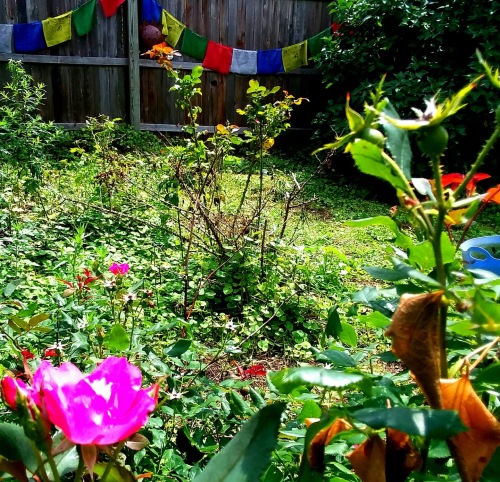This morning, I took part in Poetry Sunday, a Unitarian Universalist summer service that is a tradition. The theme was social justice. In my talk, I reflected on the nature of poetry in creating empathy and talked about Carolyn Forché’s memoir, What You Have Heard is True about her time in El Salvador. I also talk Carolyn’s influence on me as a teacher and my migration from poetry to prose.
The YouTube video of my talk is below. The complete text of my talk is below that. The service took place at the Unitarian Universalist Church of the Restoration on Stenton Ave. in Philadelphia.
“Poetry makes nothing happen”
This oft quoted line is from W.H. Auden’s poem “In Memory of W.B. Yeats.” In our culture nothing is a negative word – but I posit that nothing is a good thing. It gives us a chance to pause, to reflect, to think for ourselves and to see what is in front of us.
I have observed that poetry creates empathy. It slows down time so that we can observe a detail and then feel a feeling. And since empathy starts with the self, it may be that almost all poetry is social justice poetry.
Recently, I have noticed that I am sighing and feeling depressed whenever I see a headline. There are lots of reasons to feel depressed – especially in the news. But as someone who actively combats depression by doing Buddhist chanting every day and practicing yoga, the feeling was strong enough for me to recognize it. At the time that I was feeling this way, I was reading Carolyn Forché’s memoir of witness and resistance titled after a line in one of her most well-known poems written about her time in El Salvador in the late 1970s,What You Have Heard Is True. Carolyn, who was in El Salvador in the time that was building up to a civil war, is an internationally known poet and professor.

It was during the reading of this memoir and possibly because of it, when I decided that depression was a luxury I couldn’t afford. I am, after all, a writer. And words matter. I first met Carolyn at a week-long poetry workshop at Omega Institute that I took with my friend Anne Arfaa (who is playing the piano today. Thank you, Anne.) I was twenty-nine — the same age as Gertrude Stein when she first started taking herself seriously as a writer.
There is a lot that I have forgotten about that workshop, since it was a long time ago. But what stayed with me was my daily discipline of writing and a line of poetry from a poet I had never heard about before but came to love: Mary Oliver. I didn’t know who Carolyn Forché was before the workshop, but my partner – Barbara – told me that she was an important poet and that I would love her work. Barbara is usually right. This time she was very right.
The lines of my poetry became longer – and began to include dialogue – so I migrated from poetry to prose. I didn’t think about it then, but the discipline and the lyricism I had learned in that poetry workshop was with me when I wrote my book Tea Leaves, a memoir of mothers and daughters (published by Bella Books in 2012) and my novel THEY, a biblical tale of secret genders (published by Adelaide Books in 2018).
I remember Carolyn staring at me during the workshop when she talked about the importance of a daily writing practice. I may have imagined it, but in this moment of doing nothing – no words were spoken – it’s quite possible that I picked up the mantle of responsibility. I was one of the students who would write daily. And long before I was a Unitarian Universalist, I considered my daily writing practice to be a spiritual practice.
Carolyn Forché’s memoir brought this all back to me. What You Have Heard is True is particularly significant in light of the tragic mishandling of the crisis of immigration and asylum seekers we are witnessing at our borders. The memoir is a reminder that the poverty and violence people are fleeing in the South and Central Americas was created in part by the U.S. government. Our tax dollars helped the government support brutal corruption in the name of suppressing what the U.S. government called “communism.” What this really did was to keep the masses of people impoverished.
The information wasn’t new to me. In the old days there was lots of overlap between progressive communities. Still, I found the information to be as gripping as it was appalling. I couldn’t put the book down.
Forché extensively quotes Leonel Gomez Vides, the man who brought her to El Salvador. I will leave you with his words to ponder.
“You want to know what is revolutionary …? To tell the truth. That is what you will do when you return to your country. From the beginning this has been your journey, your coming to consciousness.”
Namaste
To learn more about my novel THEY, a biblical tale of secret genders (published by Adelaide Books New York/Lisbon), click here.










